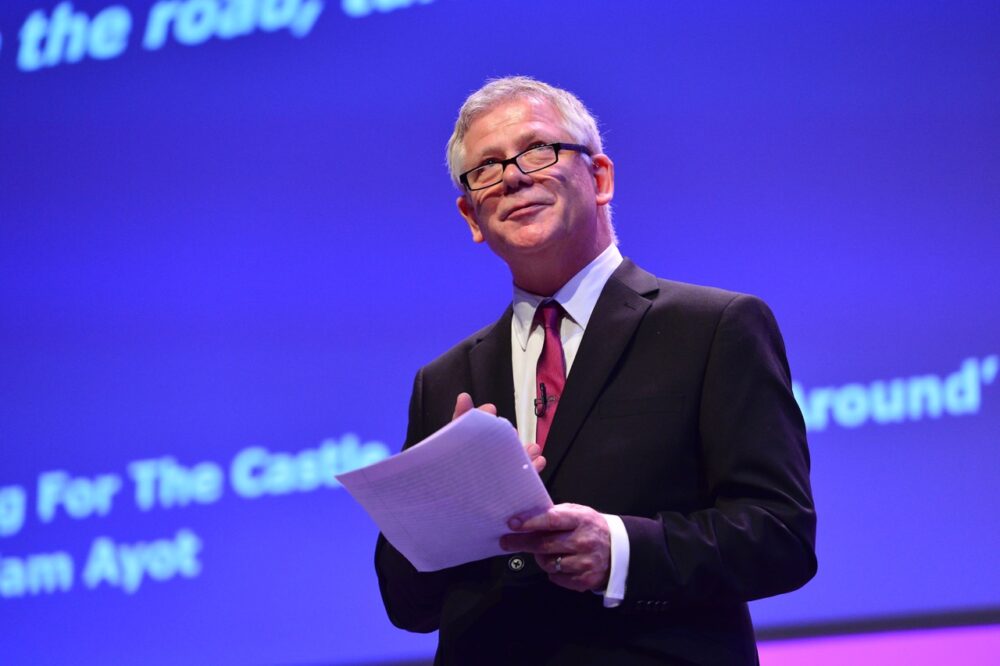An education charity chief has said too many school leaders are adopting a “victim attitude” to national accountability – issuing a rallying call for leaders to take “greater proactive responsibility for a self-improving system”.
Steve Munby, chief executive of the CfBT Education Trust, urged 1,500 school leaders to enter professional dialogue with the Government, rather than calling for Ofsted to be scrapped or performance tables eradicated.
Speaking on the second day of the Inspiring Leadership Conference in Birmingham, he said: “This means providing ambitious and well-evidenced alternatives that draw on the capacity within the system.”
He praised the work of organisations such as the Head’s Roundtable and leading unions helping school leaders move towards a self-improving system.
“I believe that we are now at a turning point in education that means we can work together to create an ambitious and accountable self-improving system,” he said.
“And the kind of leadership this calls for from all of us is neither isolationist nor reductionist. It is going be leadership that builds collective capacity and, therefore, at its heart, it needs to be invitational.
“I believe that no government that cares deeply about its education system is going to back off from accountability. Education is one of the biggest costs to the national treasury, of course there needs to be robust and transparent accountability.
“But the problem is one of balance; Balance between on the one hand a necessary focus on targets and on pressure and on the other hand positive support for those the public calls upon to lead our schools. Overly-simplistic accountability can create an atmosphere which suffocates trust.”
Mr Munby also raised concerns with the type of language used around education – highlighting a newspaper story featuring Prime Minister David Cameron declaring a “war on mediocre schools”.
“Can you imagine politicians calling for all out war on underperforming dentists or mediocre civil servants?
“No it is schools that tend to bear the brunt of this.”
He said this type of rhetoric is much less common in many countries politicians and teachers look at for inspiration, including Singapore, Finland and Japan.
“They are all characterised by a fairly positive public perception of educators. There is a general sense of alignment between the governing and the governed as far as education is concerned.
“There is greater trust between the profession and the government, a greater focus on capacity building and – as a result – a much better environment for intelligent accountability to develop.
“You could argue that the politicians in these countries have demonstrated excellent invitational leadership: they have invited everyone working in education to be part of a long-term vision to achieve a collective goal.”
My Munby also highlighted concerns over converter academies in decline becoming isolated.
“The serious worry is that during the next few years, we will see more isolationism and too much variability across the system with schools that already have high capacity to improve getting better but schools with low capacity getting stuck.
“And in a time of increased austerity, it will be interesting to see how much collaboration develops.
“As I have said before “When the watering hole begins to shrink, the animals start to look at each other differently”.
“Will we see more collaboration – to achieve greater efficiencies and cost effectiveness – or will we see more competition as schools feel more threatened financially and find it more challenging to collaborate with their neighbours?”
Mr Munby also announced his education trust is set to change its name to the Education Development Trust, while opening up day two of the Inspiring Leadership Conference.
This afternoon will include talks from Dr Alan Watkins, founder of Complete Coherence, and Alastair Campbell, former head of communications to Tony Blair.
Ben Page, chief executive of Ipsos MORI, opens up proceedings tomorrow, followed by author Erica Ariel Fox, philosopher Alain de Botton and education leader Sir Ken Robinson.
Yesterday Dr Pak Tee Ng, from the Singapore National Institute of Education, told school leaders about his country’s key success factors in education – strong government investment, good development of teachers and creating a good environment for learning.
He was followed by leadership expert Steve Radcliffe and scientist Baroness Susan Greenfield.
See Schools Week next week for a 16-page conference supplement.








Your thoughts